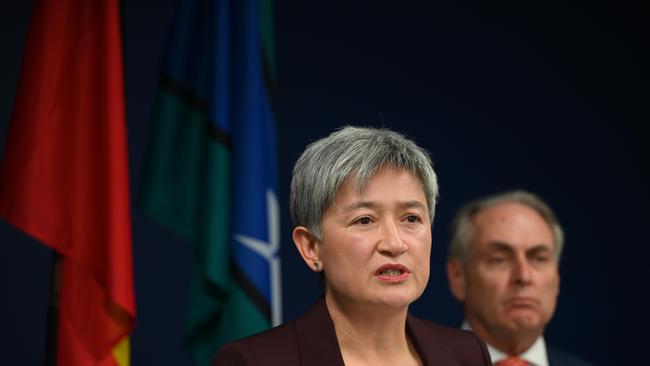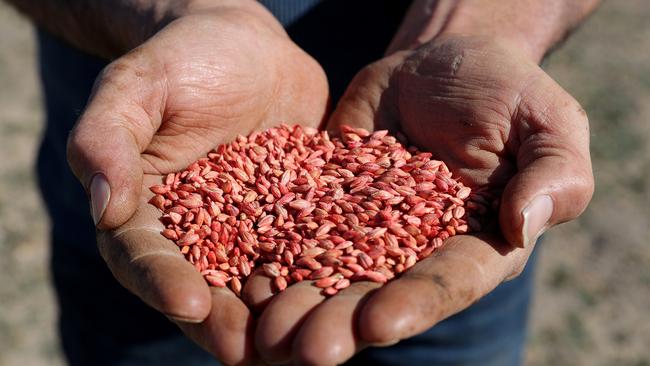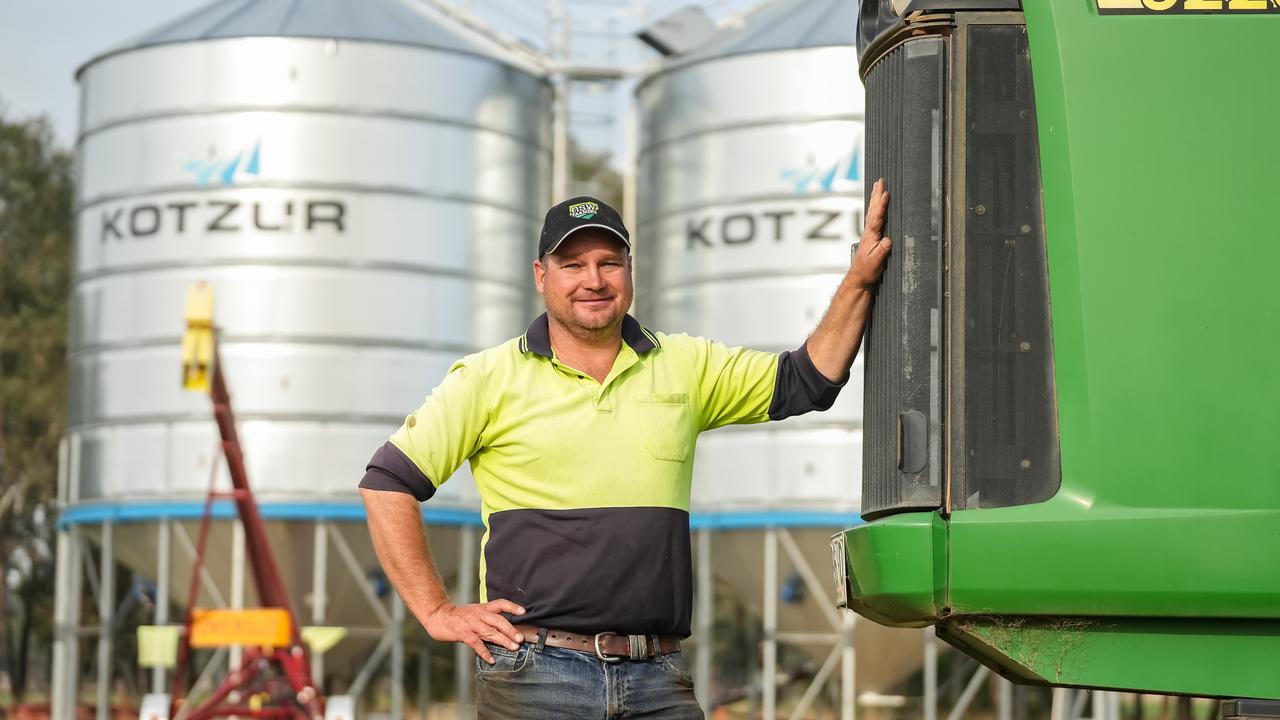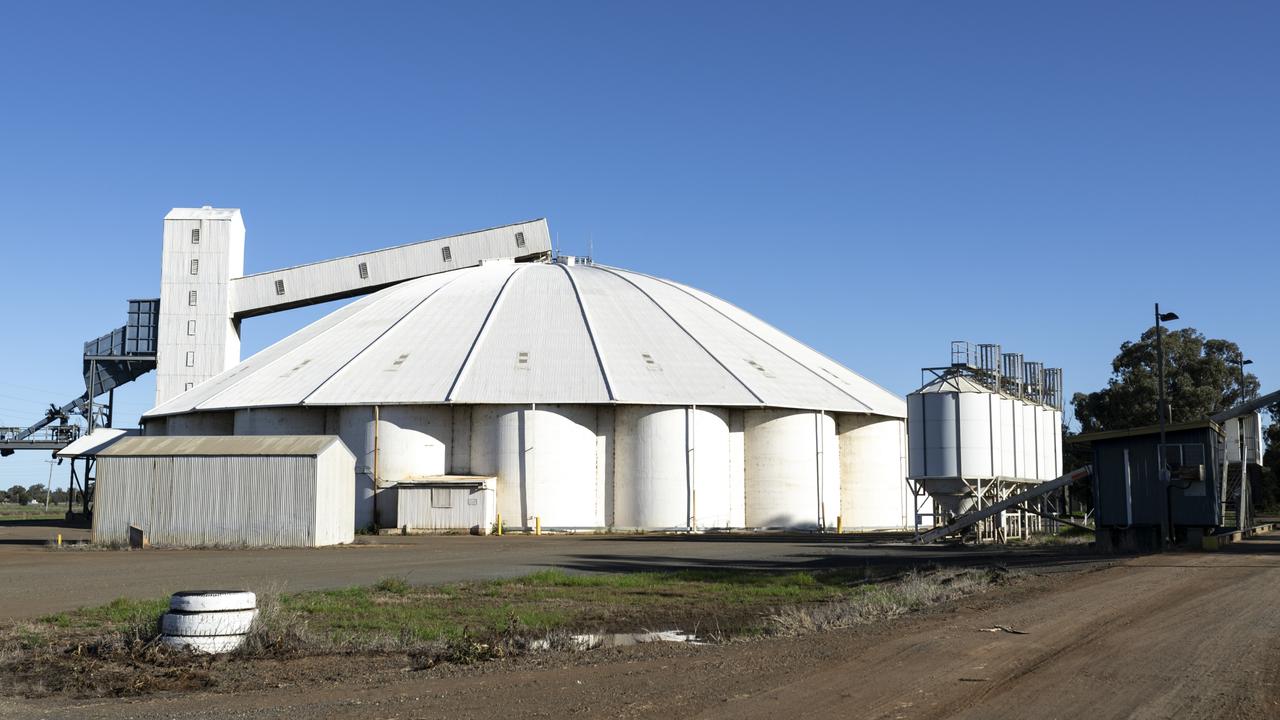China to review barley tariffs
China will review the heavy tariffs it imposed on Australian barley in 2020 as Australia agrees to temporarily suspended a World Trade Organisation appeal.

China will review the heavy tariffs it imposed on Australian barley in 2020 as Australia agrees to temporarily suspended a World Trade Organisation appeal.
Speaking at a press conference on Tuesday, Foreign Minister Penny Wong said China had agreed to review the tariffs over the next three months, and she was hopeful of “constructive dialogue” between the two nations.
As yet, there has been no confirmation that China will wind back the tariffs it imposed on the commodity.
“The government is seeking to expedite the resolution of this matter. Obviously we retain our rights in the WTO if we are not able to get agreement, but this will potentially deliver a result in a shorter time frame than if we simply proceeded through the WTO,” Ms Wong said.
If China does not lift duties on Australian barley by the end of its review period, Australia would resume the dispute in the WTO, she said.
“The Australian Government will continue to pursue our national interests through dialogue and the multilateral trading system. We will use all opportunities, including the WTO dispute mechanism, to get the best outcomes for Australia’s world-class producers and farmers,” Ms Wong said.
“If today’s agreement is successful in providing a pathway for lifting duties on barley, we expect a similar process to be followed to remove trade barriers for Australian wine.”

The World Trade Organisation was weeks away from making public its findings into a dispute between the two countries that had been underway for more than two years.
Australia raised an appeal in the WTO in December 2020 after China imposed 80.5 per cent tariffs on Australian barley, sending an annual trade worth $1.2 billion grinding to a halt.
Before the tariffs, China had been Australia’s largest market for barley, accounting for about 58 per cent of its annual 6.2 megatonnes in exports.
The loss of the major importer came at a big cost to the grains industry, despite exporters finding and expanding new markets for the commodity.
Grain Producers Australia southern region director Andrew Weidemann said the loss of China as a trading partner had cost Australian growers about $50/tonne off their barley sale price, while Grain Trade Australia estimated total losses at $2.5 billion over five years.
Grain Trade Australia chief executive Pat O’Shannassy said the announcement was “an important step forward”.
“China was historically a very important export market for barley from Australia over many decades, with very strong customer relationships and considerable cooperation between industry partners in plant breeding and technical support to meet China’s needs”, Mr O’Shannassy said.
“We very much hope this process over the next few months will enable our trade relationships to see exports resume.”
Speaking before China’s announcement on Tuesday, UNSW Herbert Smith Freehills CIBEL centre co-director Weihuan Zhou said the tariffs China had imposed were not in the interests of its own consumers and businesses, and could be lifted relatively easily if the Chinese government decided to do so.
“Less imports of barley from Australia means a less competitive (domestic) market. It also means potentially imports of barley from less efficient producers, which means a higher price,” Mr Zhou said.
“Some of the restrictions … are easy to remove, because it’s just an administrative decision. It does not require China to change any legislation, or change any regulation. (That) applies to the barley tariff and the wine tariff, which is basically a decision of Ministry of Commerce,” he said.





